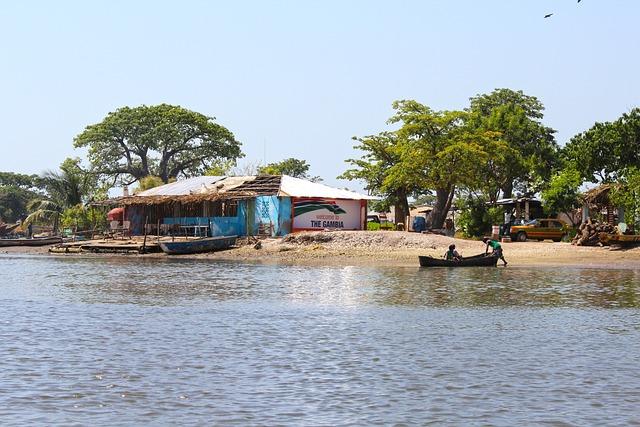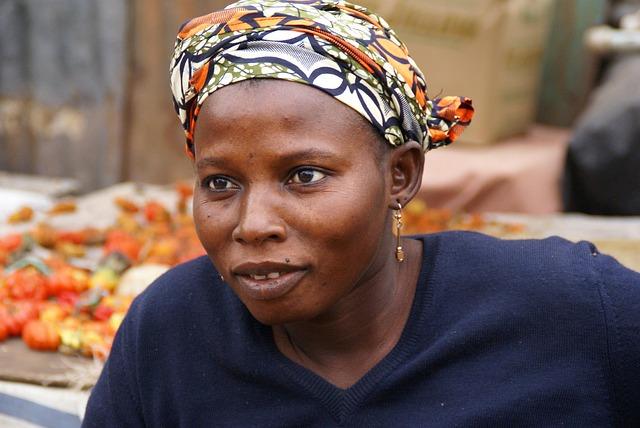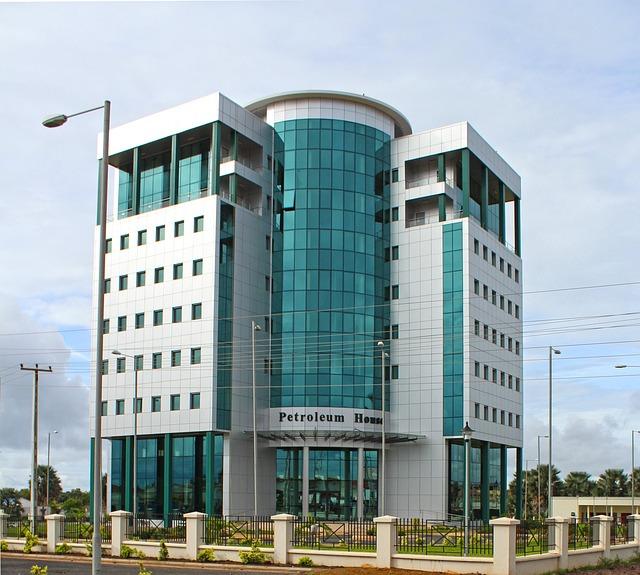In a landmark development for human rights in The Gambia,Amnesty International is calling for the Truth and Reconciliation Commission’s (TRC) findings to pave the way for justice and reparations for victims of past human rights abuses. This urgent plea comes in the wake of the TRC’s extensive report, which chronicles the atrocities committed during the regime of former President Yahya Jammeh, whose rule was marked by widespread violations, including extrajudicial killings, torture, and enforced disappearances. as The Gambia seeks to reconcile its turbulent past, Amnesty International insists that acknowledging the truth must be coupled with actionable measures to ensure accountability and restoration for those who suffered.This article delves into the implications of the TRC’s report, the government’s responsibilities, and the potential pathways to justice for thousands of victims yearning for recognition and redress.
Truth and Reconciliation in Gambia: A Crucial Step Toward Healing
the recent findings of the Truth and Reconciliation Commission (TRC) in Gambia underscore the enduring impact of past human rights violations and the urgent need for justice and reparations.As the TRC publicizes its final report, it serves as a pivotal reminder of the atrocities committed during the former regime. This process is not merely a bureaucratic exercise; it is indeed a vital pathway to healing,empowering victims to reclaim their narratives and seek restitution. However, the success of the reconciliation process hinges on the government’s commitment to implement the TRC’s recommendations, ensuring that those responsible for abuses are held accountable.
For victims of past injustices, the call for reparations is not just about financial compensation; it also encompasses broader measures aimed at restoring dignity and fostering a sense of closure.Effective reparations could include:
- Financial payments to victims and their families
- Access to healthcare services for those affected by trauma
- Educational opportunities for the children of victims
- Community development projects in affected areas
To bring these measures to fruition, the Gambian authorities must take proactive steps, including the establishment of a reparations fund. Investment in community programs aimed at fostering dialog and understanding will also be essential. By taking these actions, Gambia can draw closer to true reconciliation, enabling its citizens to move forward united, rather then divided by the shadows of the past.

Understanding the Impact of Human Rights Violations in Gambia
The struggle for justice and reparations in The Gambia is intricately linked to the history of human rights violations that have plagued the nation. For decades, the Gambian people endured authoritarian rule characterized by widespread abuses, including
This legacy of fear and oppression has created a profound societal impact, leading to a culture of silence and trauma among victims and their families. The Truth and Reconciliation Commission’s findings must not only serve as a historical account but also lay the groundwork for a restorative approach that prioritizes accountability and healing.
As the nation grapples with its past, the government’s commitment to act upon the Commission’s recommendations will be crucial in restoring faith among its citizens. It is imperative that authorities implement measures that ensure
An effective response will not only validate the experiences of survivors but also contribute to a more equitable and just society where human rights are respected for all. Without decisive action, the cycle of impunity may continue, further deepening the wounds of the past and hindering national progress.

The Role of the Truth and Reconciliation Commission in Addressing past Abuses
The Truth and Reconciliation Commission (TRC) serves as a vital mechanism for addressing the legacy of past abuses in Gambia, particularly those committed during the regime of Yahya Jammeh. By investigating human rights violations and providing a platform for victims and perpetrators to share their narratives, the TRC aims to foster national healing and understanding. The commission’s work transcends mere documentation; it seeks to unearth the truth behind decades of oppression and offers a historical account that acknowledges the suffering of countless Gambians. The findings are essential not only for creating a comprehensive historical record but also for laying the groundwork for accountability.
To achieve its goals, the TRC must ensure that its findings lead to tangible actions such as justice for victims and necessary reparations. This includes:
- Judicial accountability: Ensuring that those responsible for human rights abuses are held accountable through fair trials.
- Victim Reparations: Providing financial, psychological, and social support to victims and their families.
- Policy Reform: Implementing systemic changes in law enforcement and governance to prevent future abuses.
Moreover, the success of the TRC hinges on its ability to engage the public and foster a culture of transparency and accountability. As Gambia moves forward, it is imperative that the legacy of the TRC translates into actionable outcomes that prioritize the rights and dignity of its citizens.

Recommendations for Justice and Reparations for Victims
The Truth and Reconciliation report aims to address the historical injustices faced by victims during the past regime in Gambia. To ensure that this initiative leads to meaningful change, several recommendations shoudl be implemented:
- Legal Accountability: Establish a judicial process that holds perpetrators accountable for human rights violations.
- Victim-Centric Approach: Prioritize the voices and experiences of victims throughout the reparations process.
- Comprehensive Reparations Program: Develop a framework for both monetary compensation and restorative justice measures, including access to healthcare and psychological support for victims.
- Community Engagement: Foster dialogue within communities to promote healing and rebuild trust while involving victims in the decision-making process.
Additionally, the government must commit to the following principles to ensure effective implementation:
| Principle | description |
|---|---|
| Transparency | Conduct all reparations processes openly to build public trust. |
| Timeliness | Ensure that reparations are provided promptly to aid victims’ recovery. |
| Inclusivity | Engage all stakeholders, including marginalized communities, in the reparation efforts. |

The Importance of Accountability in Preventing Future Violations
accountability serves as the cornerstone for ensuring that the painful lessons of the past do not become mere footnotes in history. In the context of the Truth and Reconciliation report, it is crucial for authorities to not only acknowledge the transgressions of the past but to actively implement measures that prevent their recurrence. Without a steadfast commitment to accountability, there is a risk that violations might potentially be repeated, perpetuating a cycle of injustice. The establishment of robust mechanisms for overseeing the enforcement of recommendations and the prosecution of those responsible for human rights abuses is essential. This not only honors the victims but also lays the groundwork for a healthier society.
Moreover, victim reparations must be an integral part of this accountability framework. Providing support, recognition, and compensation to those affected by human rights violations is vital for healing and reconciliation. Key components of effective reparations include:
- Financial Compensation: Direct payments to victims or their families.
- Psychosocial Support: Access to counseling and mental health services.
- Public Recognition: Formal apologies and acknowledgment of the suffering endured.
Ensuring these reparations are meaningful requires transparency and community involvement, emphasizing that the path to justice is not solely about retribution but also about fostering trust and communal healing.

International Support and Solidarity in the Gambia’s Transitional Justice Process
The role of the international community in Gambia’s transition towards justice and reconciliation cannot be overstated.Organizations such as Amnesty International have consistently called for the enforcement of the recommendations made by the Truth, Reconciliation and Reparations Commission (TRRC). These recommendations are critical for addressing the harms suffered by victims of state-sponsored violence during the previous regime. The commitment from global partners to support Gambia’s transitional justice process includes:
- Financial Assistance: Funding for victim support services and awareness campaigns.
- Capacity Building: Training local institutions to effectively implement the TRRC’s recommendations.
- Monitoring and Advocacy: Engaging in continuous dialogue with Gambian authorities to ensure accountability.
Moreover, international solidarity offers a platform for victims to share their narratives and gain recognition for their suffering. Collaborative efforts in this regard are reflected in various initiatives, aiming to amplify the voices of survivors through:
| Initiative | objective |
|---|---|
| victim Support Networks | Provide psychological and legal support to survivors. |
| Awareness Campaigns | Educate the public on human rights and the importance of justice. |
| International Conferences | Facilitate dialogue on human rights issues in Gambia. |
These combined efforts create a robust system of accountability and provide a framework for justice that can definitely help prevent the recurrence of past atrocities.As the Gambia navigates this complex landscape, it must be backed by a solid foundation of international support, ensuring that the promises of truth and reconciliation translate into meaningful reparations and justice for all victims.

The Way Forward
the publication of the Truth and Reconciliation Commission’s report is a critical juncture for The Gambia as it seeks to address the profound injustices of its past.Amnesty International emphasizes that acknowledging historical grievances is only the first step; the real test lies in the government’s commitment to implementing the recommendations outlined in the report. Victims and their families deserve not only recognition of their suffering but also genuine justice and reparations that reflect the gravity of the abuses they endured. As The Gambia embarks on this path toward healing and accountability, the international community and local stakeholders must remain vigilant, ensuring that the call for justice echo beyond mere words and lead to tangible change. the pursuit of reconciliation is a collective duty, and it is indeed imperative that the voices of those who suffered are at the forefront of this essential process.Only then can The Gambia truly overcome its tumultuous past and build a future grounded in respect for human rights and dignity for all.







